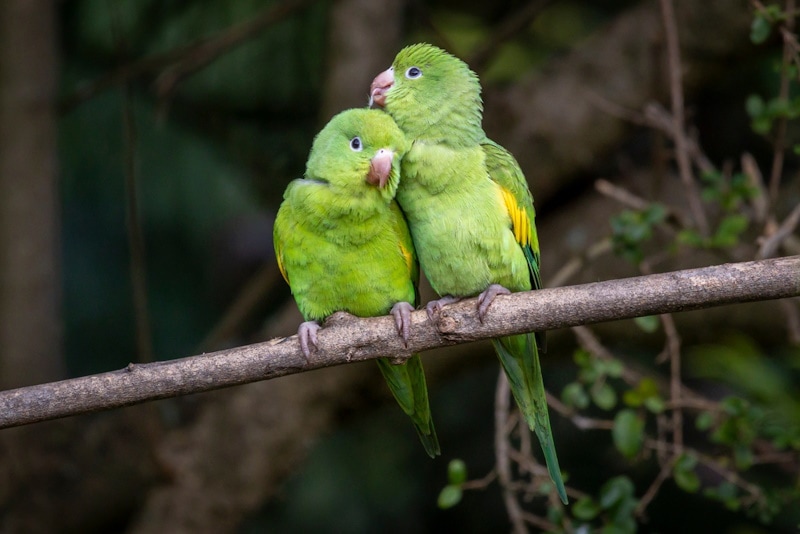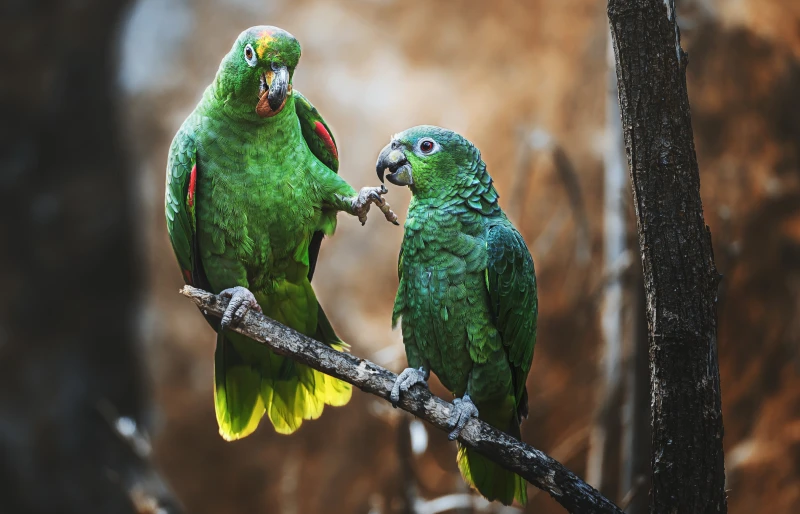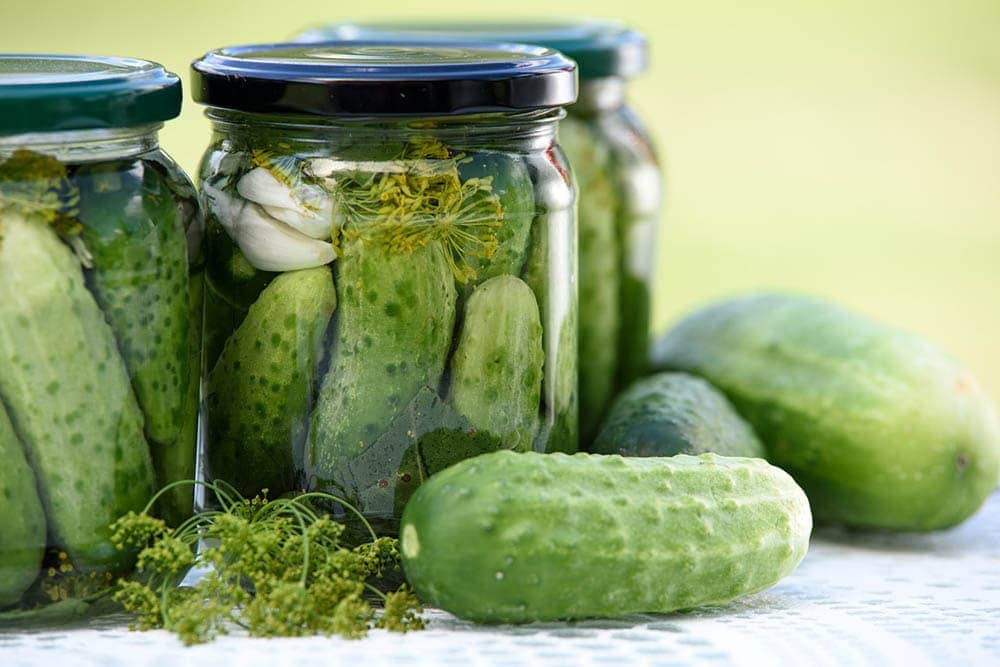Can Parrots Eat Ginger? Vet-Reviewed Health Concerns
Updated on

This article has been reviewed for factual accuracy by a qualified veterinarian, using information available at the time of publishing. Parrot owners are urged to consult with their veterinarian when making dietary decisions for their pet. This article is designed to provide general information but it does not take into account your pet’s health status or circumstances.
Click to Skip Ahead
Drinking ginger shots in the morning to boost immunity is all the rage these days, but the truth is that this spice has been around for a while. This flowering plant is a medicinal plant used worldwide, both to add a spicy touch to recipes and to improve human health. But is it okay to share ginger with your feathered friend?
Although ginger (either the root or extract) is neither toxic nor harmful to parrots, there are no rigorous scientific studies to support its health benefits for these birds.
Let’s take a closer look at the health claims and see if they can apply to parrots.
What Are the Health Benefits of Ginger?
Ginger (Zingiber officinale) is a widely used herbal medicine and spice. The rhizomes of this plant are commonly used in cooking and for their medicinal properties. The rhizome, or underground stem, is technically considered a vegetable. The main bioactive components responsible for its pungency and pharmacological activities are called gingerols. These phenolic compounds exhibit a range of healing properties, including anticancer, antioxidant, antimicrobial, anti-inflammatory, and antiallergic effects.
Considering these potential benefits for humans, it’s natural to wonder whether ginger can have similar positive effects on parrots.

Can Parrots Eat Ginger?
Unfortunately, there is little scientific information on the effect of ginger (in all its forms, extract, root, etc.) on parrots in particular. That said, a few studies have looked at the effect of ginger on other species of birds, such as chickens. Here’s what the results suggest:
A study on the effects of ginger extract on the “laying performance, egg quality, and antioxidant status of laying hens” investigated the beneficial effects of ginger as a dietary supplement for poultry feed.1 It highlighted the positive effect of ginger extract on weight, egg production, reproductive performance, and liver parameters of hens. Another study highlighted the potential of ginger as an alternative to antibiotics used in feed for poultry production,2 demonstrating once again its positive effects on egg production and quality.
Furthermore, these studies emphasized the significant antioxidant and antimicrobial properties of ginger extract on these birds. They also did not note any toxic side effects on poultry, concluding that “ginger and its derivatives could be mentioned harmless due to possessing no acute toxicological collateral outcomes.”
In other words, ginger has been deemed safe for chickens to eat.
So, Should You Feed Ginger to Your Parrot?
Considering its overall positive benefits in poultry, it is safe to assume that ginger can be given in moderation to most parrots. That said, it’s advisable to consult an avian veterinarian beforehand to ensure that ginger won’t interfere with your parrot’s dietary needs. Species differences come into play when making dietary decisions, but most will enjoy some vegetables. Also, it’s worth noting that not all parrot species will enjoy the pungent flavor of ginger.
It’s also essential to remember that parrots have sensitive digestive systems. Introducing new or unusual foods too quickly can lead to digestive upset, such as diarrhea.
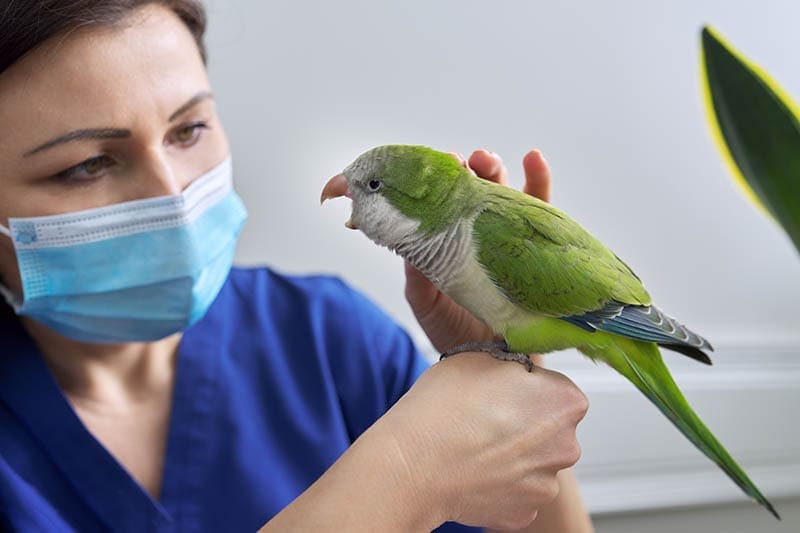
How Does Consumption Affect Different Species of Parrots?
There is little scientific evidence on the effect of ginger consumption on parrots in general, let alone specific parrot species.
Still, here’s important information to keep in mind regarding a few popular parrot species and their specific dietary needs.
Macaws
Macaws need a diet that’s high in fat, so nuts (walnuts, Brazil nuts, etc.) and seeds can be included in their daily intake. Fruits like apples, oranges, and bananas are typically well-received by Macaws. They also enjoy various vegetables, such as carrots, sweet potatoes, and green beans.
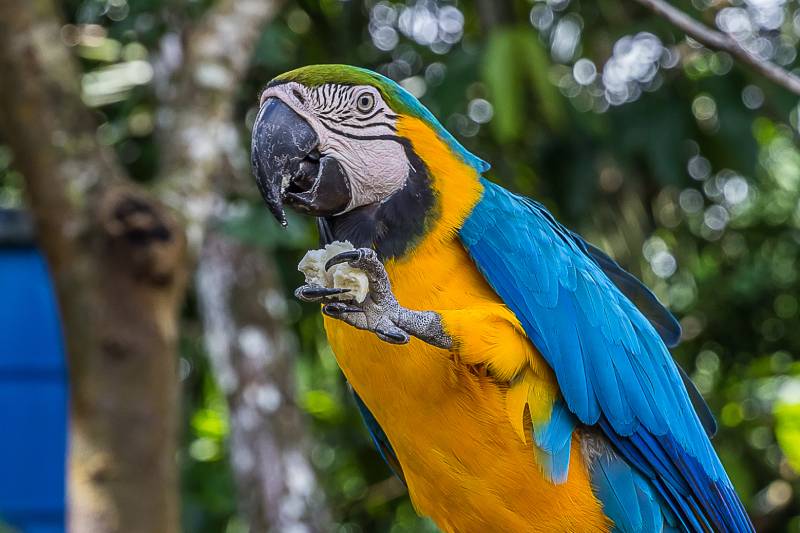
African Greys
African Greys can be picky eaters. They may preferentially go for foods higher in fat like peanuts which can lead to other nutrient deficiencies. They should have some seeds but species-appropriate pellets and vegetables should be high on the list of menu items.
Eclectus Parrots
Eclectus parrots need a diet that is higher in fiber, low in fat, and rich in B carotenes. This can be provided by lots of fruits and vegetables. Grains and seeds should make up only 10% of the diet due to the fat content.
Bottom Line
Ginger has been proven to be a superfood that strengthens the immune system, relieves arthritis pain, helps reduce nausea, manages weight loss, and lowers cholesterol levels—in humans.
Despite these impressive benefits for human health, it remains unclear whether parrots can reap similar rewards. That said, several scientific studies have demonstrated the many benefits of ginger for poultry, with little or no side effects observed.
While we wait for concrete evidence of ginger’s specific benefits for parrots, it’s best not to overdo it. Although feel free to offer a little fresh ginger as a treat to see if your bird enjoys the taste.
Featured Image Credit: jmexclusives, pixabay



